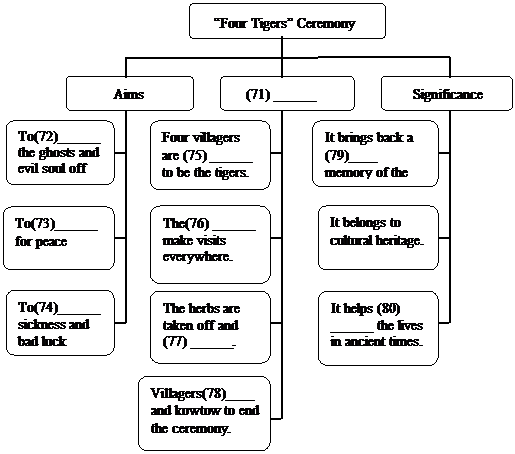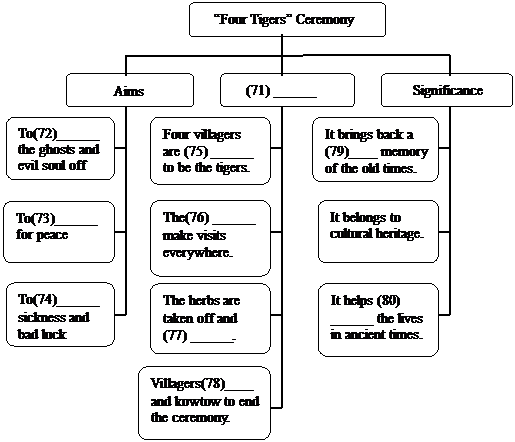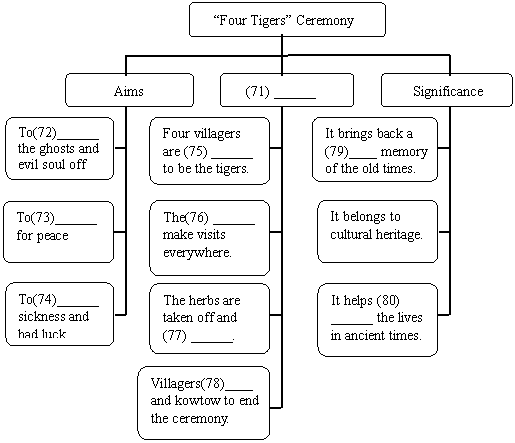
A sick little gift is being kept alive thanks to her best friend--a dog who carries her oxygen tank on his back. Alida’s faithful dog companion Mr Gibbs has been specially trained to shepherd the three-year-old, who breathes through a tube most of the time. He follows her closely as she plays in her family’s ten-acre land in Louisville, uses the slide or even rides her bike.
Alida was diagnosed(诊断)with neuroendocrine hyperplasia of infancy(NEHI)when she was just eight months old. Her rare condition has just eight hundred documented sufferers throughout the world, and causes diseased pieces of the lungs to filter(过滤)oxygen through extra layers(膜)of cells making it hard or almost impossible to breathe. For Alida and her parents, it meant that even a walk in the park was very difficult because oxygen equipment was too heavy for the youngster to be able to carry herself. As parents they wanted to do something to help their daughter survive despite having a tube following her all the time. The couple found out about “service dogs” from a TV program and realized an animal trained to help the blind could be trained to help Alida. They finally found help in the shape of golden doodle—a retriever crossed with a poodle-dog Mr Gibbs. Now--thanks to trainer Ashleigh Kinsley—Alida and Mr Gibbs love nothing more than playing and running around together with the dog acting as Alida’s life saver.
63. What is Mr Gibbs?
A. A pet dog. B. A policeman. C. A doctor. D. A firefighter.
64. When did the doctor know Alicia caught the disease?
A. At her birth. B. At the age of eight.
C. Before she was one year old. D. When she was three years old.
65. The underlined part “the couple” in paragraph 3 refers to ________.
A. Alida’s classmates B. Alida’s parents
C. Alida’s doctors D. Alida’s pets
66. How did Alicia keep alive?
A. By training her dog. B. By staying with her parents.
C. By playing with her fellows. D. By breathing through a tube.
科目:高中英语 来源:2012-2013学年河北省五校联盟高三上学期调研考试英语试卷(解析版) 题型:阅读理解
A little boy invited his mother to attend his school’s first teacher-parent meeting. To the little boy’s 36 , she said she would go. This would be the first time that his classmates and teacher 37 his mother and he felt 38 of her appearance. Although she was a beautiful woman, there was a severe scar that 39 nearly the entire right side of her face. The boy never wanted to 40 why or how she got the scar.
At the meeting, the people were 41 by the kindness and natural beauty of his mother
42 the scar, but the little boy was still embarrassed and 43 himself from everyone. He did, however, get within hearing of a conversation between his mother and his teacher.
The teacher asked 44 , “How did you get the scar on your face?”
The mother replied, “ 45 my son was a baby, he was in a room that 46 fire. Everyone was 47 afraid to go in because the fire was 48 , so I went in. As I was running toward his bed, I saw a long piece of wood coming down and I placed myself 49 him trying to protect him. I was knocked 50 but fortunately, a fireman came in and saved both of us. ” She 51 the burned side of her face. “This scar will be 52 , but to this day, I have never 53 what I did.”
At this point, the little boy came out running toward his mother with tears in his eyes. He 54 her in his arms and felt a great sense of the sacrifice that his mother had made for him. He held her hand 55 for the rest of the day.
1.A. enjoyment B. disappointment C. sorrow D. joy
2.A. noticed B. greeted C. accepted D. met
3.A. sick B. ashamed C. afraid D. tired
4.A. included B. passed C. covered D. shaded
5.A. talk about B. think about C. care for D. hear about
6.A. impressed B. surprised C. excited D. comforted
7.A. in sight of B. by means of C. by way of D. in spite of
8.A. hid B. protected C. separated D. escaped
9.A. carefully B. seriously C. nervously D. anxiously
10.A. As B. When C. Since D. While
11.A. caught B. set C. lit D. made
12.A. so B. much C. quite D. too
13.A. out of control B. under control C. in control D. over control
14.A. under B. at C. to D. over
15.A. helpless B. hopeless C. senseless D. useless
16.A. pointed B. showed C. wiped D. touched
17.A. ugly B. lasting C. serious D. frightening
18.A. forgot B. recognized C. considered D. regretted
19.A. grasped B. held C. put D. caught
20.A. quietly B. slightly C. tightly D. suddenly
查看答案和解析>>
科目:高中英语 来源: 题型:阅读理解
第四部分 任务型阅读 (共10小题;每小题1分, 满分10分)
请认真阅读下列短文, 并根据所读内容在文章后表格的空格处里填人最恰当的单词。注意:每个空格填1个单词。
“Four Tigers” Ceremony of the Tu Minority
Heigouding Village, Ledu County in the west of Qinghai province is a place where many people of the Tu minority have lived for centuries. As the little village is comparatively closed to the outside world, a custom called “Four Tigers” was created 200 years ago to protect its inhabitants(栖息地) from sickness and bad luck.
Every year the ceremony is held on the eve of January 15th according to the Chinese lunar calendar to frighten off ghosts and evil souls, and to pray for peace.
Normally four local villagers are selected to be the “tigers” in the ceremony. At first, they gathered with village elders at the mountain-god temple to offer sacrifices of wine, food and incense, and to ask the god to help the tigers. Then the tigers were adorned with herbs, candles and two batches of incense to serve as the tiger’s ears. Two red ribbons held in their mouths represented the tiger’s tongue. The “Tigers” drank wine, knelt and kowtowed to the mountain god before they received Hada, a kind of white silk scarf representing respects and good luck, from the village head with firecrackers cracklin![]() g.
g.
As night fell, the candles on the tigers’ bodies were lit and the tigers began their visits to one household after another. Villagers followed, shouting “Tigers are coming!” The elder from each household welcomed the tigers at the gate, while the rest of the family knelt down in the courtyard. Firecrackers were set off, a toast made and candies, meat and wine were presented to the villagers following the tigers. After twirling (快速转动)in three circles in the courtyard while those present kowtowed and prayed, the tigers went through every corner of every room to drive away any hiding ghosts. If there was a sick person in the house, the tigers jumped around him or her, scratched their body and said lucky words to drive away diseases and ghosts. After the ceremony, the family would present wine and food to the tigers. Then, shouting “The tigers are leaving!” the whole family saw them off.
After visiting all 30 or 40 households, the herbs were removed from the tigers and burned, to indicate that all the ghosts had been conquered. Then the villagers knelt and kowtowed with the sound of firecrackers, marking the end of the ceremony.
The tiger image exists in other minority groups, also. In ancient times, people entrusted their happiness to gods. The “four tigers” ceremony is vividly held in memory of ancient times and a living fossil for academics studying the lives of ancient people. As it is not popular nowadays, this cultural heritage is on the edge of extinction and needs to be rescued.

查看答案和解析>>
科目:高中英语 来源: 题型:阅读理解
第四部分:任务型阅读(共10小题;每小题1分,满分10分)
请认真阅读下列短文,并根据所读内容在文章后表格中的空格里填入一个最恰当的单词。注意:每个空格只填1个单词。请将答案写在答题卡上相应题号的横线上。
“Four Tigers” Ceremony of the Tu Minority
Heigouding Village, Ledu County in the west of Qinghai province is a place where many people of the Tu minority have lived for centuries. As the little village is comparatively closed to the outside world, a custom called “Four Tigers” was created 200 years ago to protect its inhabitants(栖息地) from sickness and bad luck.
Every year the ceremony is held on the eve of January 15th according to the Chinese lunar calendar to frighten off ghosts and evil souls, and to pray for peace.
Normally four local villagers are selected to be the “tigers” in the ceremony. At first, they gathered with village elders at the mountain-god temple to offer sacrifices of wine, food and incense, and to ask the god to help the tigers. Then the tigers were adorned with herbs, candles and two batches of incense to serve as the tiger’s ears. Two red ribbons held in their mouths represented the tiger’s tongue. The “Tigers” drank wine, knelt and kowtowed to the mountain god before they received Hada, a kind of white silk scarf representing respects and good luck, from the village head with firecrackers crackling.
As night fell, the candles on the tigers’ bodies were lit and the tigers began their visits to one household after another. Villagers followed, shouting “Tigers are coming!” The elder from each household welcomed the tigers at the gate, while the rest of the family knelt down in the courtyard. Firecrackers were set off, a toast made and candies, meat and wine were presented to the villagers following the tigers. After twirling (快速转动)in three circles in the courtyard while those present kowtowed and prayed, the tigers went through every corner of every room to drive away any hiding ghosts. If there was a sick person in the house, the tigers jumped around him or her, scratched their body and said lucky words to drive away diseases and ghosts. After the ceremony, the family would present wine and food to the tigers. Then, shouting “The tigers are leaving!” the whole family saw them off.
After visiting all 30 or 40 households, the herbs were removed from the tigers and burned, to indicate that all the ghosts had been conquered. Then the villagers knelt and kowtowed with the sound of firecrackers, marking the end of the ceremony.
The tiger image exists in other minority groups, also. In ancient times, people entrusted their happiness to gods. The “four tigers” ceremony is vividly held in memory of ancient times and a living fossil for academics studying the lives of ancient people. As it is not popular nowadays, this cultural heritage is on the edge of extinction and needs to be rescued.
 |
查看答案和解析>>
科目:高中英语 来源: 题型:阅读理解
“Four Tigers” Ceremony of the Tu Minority
Heigouding Village, Ledu County in the west of Qinghai province is a place where many people of the Tu minority have lived for centuries. As the little village is comparatively closed to the outside world, a custom called “Four Tigers” was created 200 years ago to protect its inhabitants(栖息地) from sickness and bad luck.
Every year the ceremony is held on the eve of January 15th according to the Chinese lunar calendar to frighten off ghosts and evil souls, and to pray for peace.
Normally four local villagers are selected to be the “tigers” in the ceremony. At first, they gathered with village elders at the mountain-god temple to offer sacrifices of wine, food and incense, and to ask the god to help the tigers. Then the tigers were adorned with herbs, candles and two batches of incense to serve as the tiger’s ears. Two red ribbons held in their mouths represented the tiger’s tongue. The “Tigers” drank wine, knelt and kowtowed to the mountain god before they received Hada, a kind of white silk scarf representing respects and good luck, from the village head with firecrackers crackling.
As night fell, the candles on the tigers’ bodies were lit and the tigers began their visits to one household after another. Villagers followed, shouting “Tigers are coming!” The elder from each household welcomed the tigers at the gate, while the rest of the family knelt down in the courtyard. Firecrackers were set off, a toast made and candies, meat and wine were presented to the villagers following the tigers. After twirling (快速转动)in three circles in the courtyard while those present kowtowed and prayed, the tigers went through every corner of every room to drive away any hiding ghosts. If there was a sick person in the house, the tigers jumped around him or her, scratched their body and said lucky words to drive away diseases and ghosts. After the ceremony, the family would present wine and food to the tigers. Then, shouting “The tigers are leaving!” the whole family saw them off.
 After visiting all 30 or 40 households, the herbs were removed from the tigers and burned, to indicate that all the ghosts had been conquered. Then the villagers knelt and kowtowed with the sound of firecrackers, marking the end of the ceremony.
After visiting all 30 or 40 households, the herbs were removed from the tigers and burned, to indicate that all the ghosts had been conquered. Then the villagers knelt and kowtowed with the sound of firecrackers, marking the end of the ceremony.
The tiger image exists in other minority groups, also. In ancient times, people entrusted their happiness to gods. The “four tigers” ceremony is vividly held in memory of ancient times and a living fossil for academics studying the lives of ancient people. As it is not popular nowadays, this cultural heritage is on the edge of extinction and needs to be rescued.
查看答案和解析>>
科目:高中英语 来源: 题型:阅读理解
An old man lay in a hospital bed, heavily sedated(给……服镇定剂)to ease the pain from his heart attack. The nurse arrived and said, “Your 36 is here,” repeating the words several times before the 37 conscious man opened his eyes, His son was a 38 who had come back from service to 39 to his beloved father.
The elderly man 40 out to touch his son’s hand squeezed it gently. All through the 41 , the young soldier sat in the dimly lit ward(病房)offering words of 42 to his dying dad. Who said 43 , but kept a feeble grip of his child. 44 of the noise of the oxygen tank and the moans of the other patients, the marine remained 45 by the old man’s side.
Several times in the course of that long night, the nurse returned and suggested that the marine leave to 46 for while. But each time he would 47 .
As dawn approached the elderly man 48 . His loving son rested the old man’s lifeless hand on the bed and left to hind the 49 . The young man waited while the nurse carried his father’s body away and when she returned, offering words of 50 , the marine interrupted her.
“Who was that man?” he asked.
51 . the nurse replied, “He was your father”.
“No, he wasn’t,” the young man said, “I’ve 52 seen him before in my life”.
“Then why didn’t you say something?”
“When I arrived at the ward, I knew right away there had been a (n) 53 .”the young man explained. “But I also knew that man needed his son, and he wasn’t here. I could tell he was too 54 to know who sat beside him but he needed someone there, so I just decided to 55 .”
36. A. son B. brother C. cousin D. friend
37. A. simply B. actually C. barely D. totally
38. A. director B. marine C. policeman D. manager
39. A. talk B. stick C. tend D. adjust
40. A. reached B. moved C. walked D. picked
41. A. morning B. noon C. afternoon D. night
42. A. respect B. encouragement C. truth D. wisdom
43. A. something B. everything C. nothing D. much
44. A. Unaware B. Afraid C. Free D. Sick
45. A. calm B. still C. seriously D. loyally
46.A. walk B. rest C. chat D. exercise
47.A. refuse B. hesitate C. explain D. think
48.A. awoke B. screamed C. died D. fainted
49.A. friend B. nurse C. relative D. ambulance
50. A. anger B. love C. admiration D. sympathy
51. A. Surprised B. Curious C. Upset D. Annoyed
52. A. ever B. fault C. seldom D. once
53. A. story B. fault C. mistake D. accident
54. A. sick B. anxious C. careless D. disappointed
55.A. live B. leave C. flee D. stay
查看答案和解析>>
湖北省互联网违法和不良信息举报平台 | 网上有害信息举报专区 | 电信诈骗举报专区 | 涉历史虚无主义有害信息举报专区 | 涉企侵权举报专区
违法和不良信息举报电话:027-86699610 举报邮箱:58377363@163.com